Call for participation to the innovation challenge
“AI Act Compass: Navigating Requirements for High-Risk AI Systems”
The challenge
The EU project “LeADS- Legality attentive data scientists- GA 956562” ( Sant’Anna School of Advanced Studies – Pisa), in collaboration with the Pisa Internet Festival, organizes an innovation challenge on the topic of the AI Act (Regulation EU 2024/1689). Participants will need to create a solution that helps developers or deployers of AI systems to navigate the risk classification system of the AI Act and understand which requirements apply to them.
DEADLINE FOR REGISTRATION 11:00 PM CEST of 6 September 2024.
The challenge is organized as follows:
Offline phase (16th of September – 6th of October 2024):
The selected teams will work offline on the first part of the challenge. On the 16th of September 2024, the teams will receive, at the contact email provided, detailed instructions and the necessary documentation. The teams will send their solution in the form of a mock-up to the mail challenge@legalityattentivedatascientists.eu by the 6th of October 2024 h. 21:00.
In-person phase (10th of October 2024 in Pisa – Italy):
In the morning, the selected teams will receive and solve the second part of the challenge that will concern the tailoring of the solution to a concrete scenario. In the afternoon, the teams will present their solution to the jury.
The prizes
What can you win?
- First place: 2.500€
- Second place: 1.500€
- Third place: 1.000€
- Best presentation: 500€
- Most innovative solution: 500€
The prizes will be awarded by an independent jury on the 10th of October 2024 (from 7 to 8 pm).
How will the winning solutions be selected?
The evaluation will concern the artefact (innovative, reliable, usable, efficient), the output (useful and legally accurate) and the presentation (well-structured, explanatory and engaging).
What will happen to the winning solutions?
Following the principles of open science, the winning solutions will be released under an “as open as possible” license – namely a CC BY 4.0 license (https://creativecommons.org/licenses/by/4.0/) for any document or image and a MIT license (https://mit-license.org/ ) for any software component.
Application, composition and selection of the teams
The organizers will select a maximum of 7 teams among the applicants.
How should teams be composed?
Teams must be composed of a minimum of 2 and a maximum of 3 people between 18 and 28 years old.
How should you apply?
Each team needs to apply via the form available at: https://forms.office.com/e/jiDwEGfCPW by the 6th of September 2024 at 11.00 PM CEST.
The application should contain:
- Team name
- Team Leader Name (contact person)
- Team composition (minimum 2 and maximum 3 members), for each member:
- Name and surname
- Date of birth
- Food intolerances
- Email address of the team leader (contact address)
- Link to a cloud folder (e.g., google drive, dropbox, onedrive, etc.) Containing:
- Motivation letter of the team IN ENGLISH (Why they wish to participate and why they should be selected – max 800 words)
- Concise CV IN ENGLISH (max 2 pages) for each team member
How will you know if you have been selected?
We will send an e-mail to the contact address provided on the 12th of September 2024.
Participation
Why should you participate?
If you are a creative young team who wants to solve innovative challenges at the intersection of technology and law and win a prize to start your own project, you are in the right place!
How will the trip to Pisa be organized and which expenses will be covered?
The organizers of the challenge will cover the travel expenses to Pisa of the members of the selected teams, up to a maximum of 600 euros per team. The selected teams will need to organize their trips autonomously and will be reimbursed after the trip, upon presentation of the receipts and the original tickets. Breakfast, lunch and early dinner of the 10th of October will be served at the venue of the Challenge.
What language will we use?
English will be the working and presentation language. Therefore, at least one member of each team must be able to present clearly in English and to answer questions by the Jury.
Rules and further information
OFFICIAL RULES
For any question, write to pm@legalityattentivedatascientists.eu
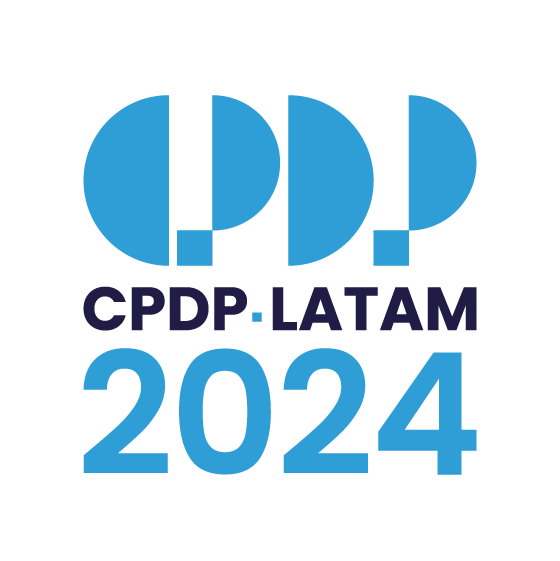 On July 17th, ESR Barbara Lazarotto participated in a panel discussion on ‘The Impact of EU AI Regulation on Latin American AI Governance: Emerging AI Authorities?’ at CPDP Latam.
On July 17th, ESR Barbara Lazarotto participated in a panel discussion on ‘The Impact of EU AI Regulation on Latin American AI Governance: Emerging AI Authorities?’ at CPDP Latam.


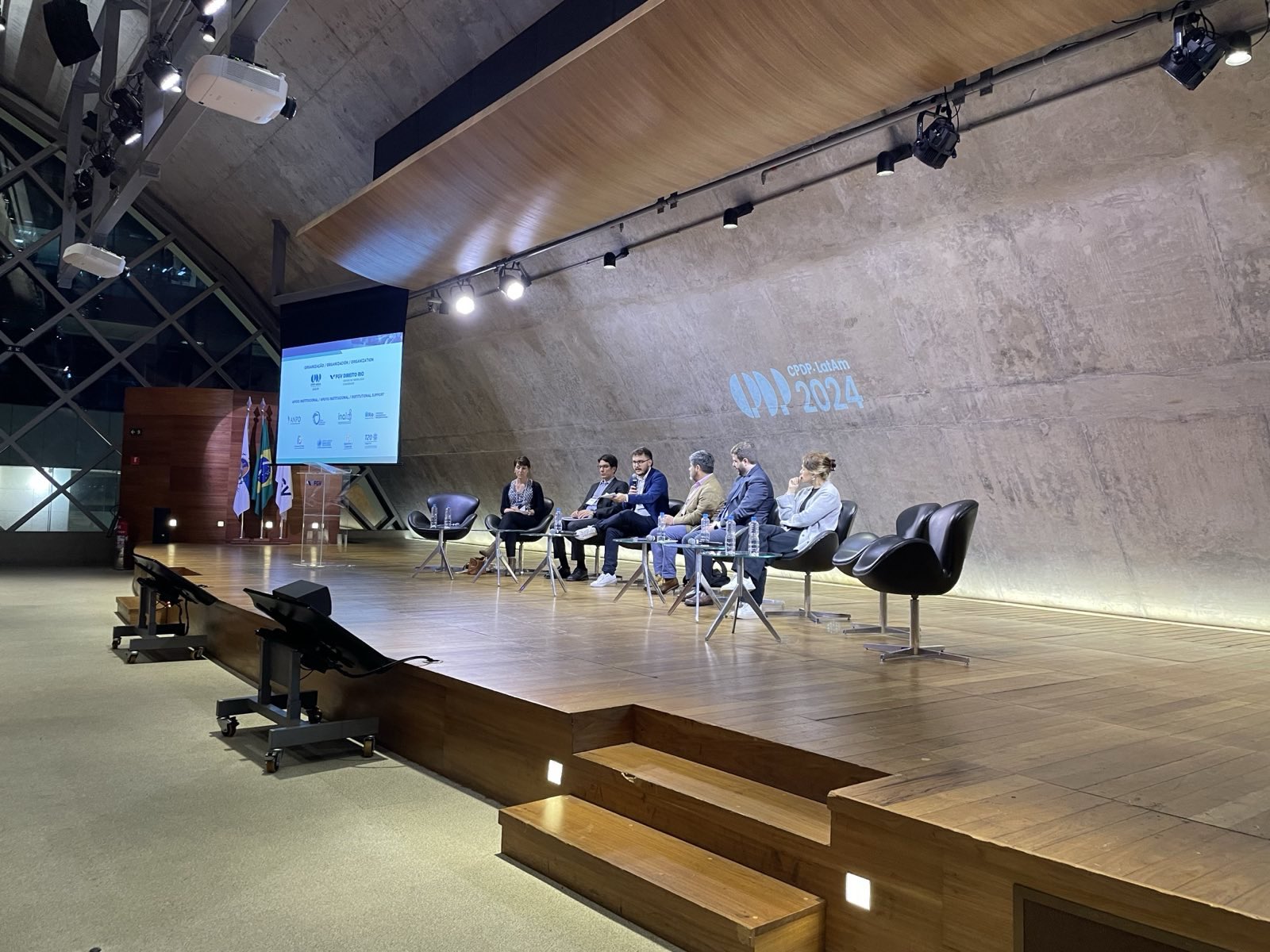



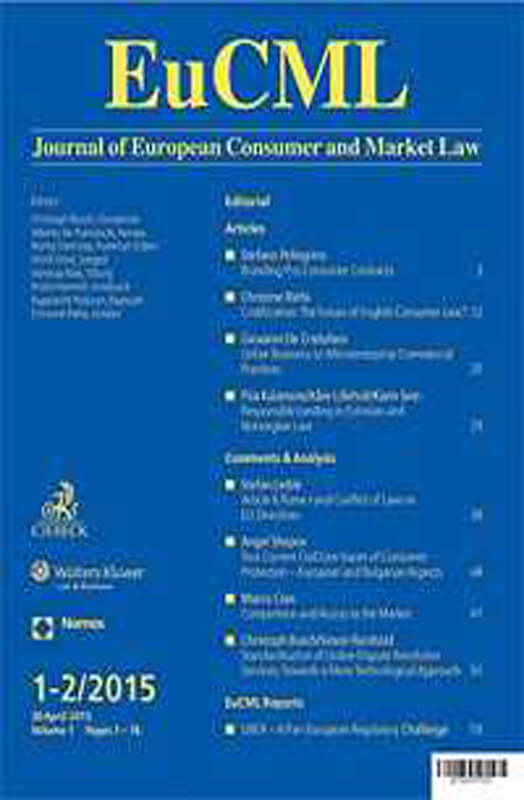 ESR Onntje Hinrichs’ article on “Consumer Law and the Regulation of the Free Flow of Data: Upsetting the Balance of the European Data Protection Framework” has been published in the Journal of European Consumer and Market Law (EuCML).
ESR Onntje Hinrichs’ article on “Consumer Law and the Regulation of the Free Flow of Data: Upsetting the Balance of the European Data Protection Framework” has been published in the Journal of European Consumer and Market Law (EuCML).
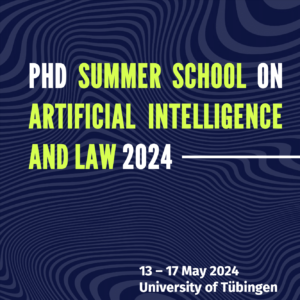




 secondment at Scuola Superiore Sant’Anna (SSSA) in Pisa, Italy. Both secondments provided him with valuable, new perspectives and insights on his LeADS research topic on ‘solving conflicts between data holders and exploiters through a spectrum of quasi-property models’ and thus the broader question on how to solve and deal with conflicting interests in data by different stakeholders.
secondment at Scuola Superiore Sant’Anna (SSSA) in Pisa, Italy. Both secondments provided him with valuable, new perspectives and insights on his LeADS research topic on ‘solving conflicts between data holders and exploiters through a spectrum of quasi-property models’ and thus the broader question on how to solve and deal with conflicting interests in data by different stakeholders.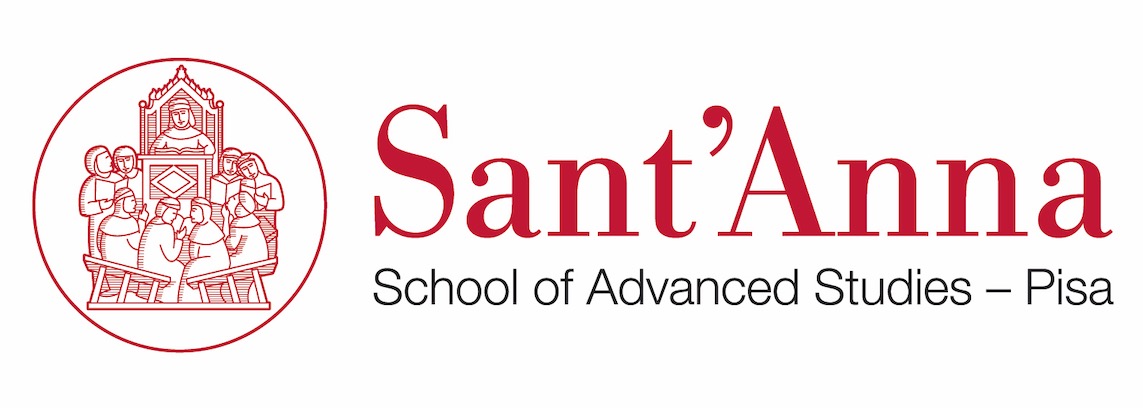 research, training and consulting and benefits from the interdisciplinary milieu of SSSA. In addition to regular seminaries which are highly relevant for his LeADS research topic, such as a presentation by Prof. Tao Qian from China University of Political Science and Law on ‘AI and Copyright – Comparison between China and the EU’, Onntje will present his PhD research to members of the Lab by the end of May 2024. Discussions and feedback provided by researchers at SSSA will thus enable him to further improve and refine his PhD research.
research, training and consulting and benefits from the interdisciplinary milieu of SSSA. In addition to regular seminaries which are highly relevant for his LeADS research topic, such as a presentation by Prof. Tao Qian from China University of Political Science and Law on ‘AI and Copyright – Comparison between China and the EU’, Onntje will present his PhD research to members of the Lab by the end of May 2024. Discussions and feedback provided by researchers at SSSA will thus enable him to further improve and refine his PhD research. Under the supervision of Prof. Fryderyk Zoll and Dr. Katarzyna Południak-Gierz at Jagiellonian University, Qifan Yang engaged in rigorous research activities aimed at unravelling the complexities surrounding the control of personal data and its impact on market competition and other aspects. By exploring real-world case studies, such as the Facebook case, she further analysed the regulatory challenges from data-driven anti-competitive strategies to the implications of mergers and acquisitions within data-intensive sectors, like social media. Additionally, she also explored concepts in consumer protection law, liability law, and behavioural economics, enhancing her understanding of the broader implications of data concentration on privacy reduction.
Under the supervision of Prof. Fryderyk Zoll and Dr. Katarzyna Południak-Gierz at Jagiellonian University, Qifan Yang engaged in rigorous research activities aimed at unravelling the complexities surrounding the control of personal data and its impact on market competition and other aspects. By exploring real-world case studies, such as the Facebook case, she further analysed the regulatory challenges from data-driven anti-competitive strategies to the implications of mergers and acquisitions within data-intensive sectors, like social media. Additionally, she also explored concepts in consumer protection law, liability law, and behavioural economics, enhancing her understanding of the broader implications of data concentration on privacy reduction. in the Office of the Chief Economist, she focused on assessing the effectiveness of personal data protection policies and their implications for market dynamics. One of her primary tasks involved analysing the interplay between personal data protection and market competition, evaluating market dominance, unfair competition practices, and monopolistic behaviours in the digital economy. Practical policy evaluations, including those related to personal data protection and competition law, honed her analytical skills and provided a nuanced understanding of regulatory frameworks.
in the Office of the Chief Economist, she focused on assessing the effectiveness of personal data protection policies and their implications for market dynamics. One of her primary tasks involved analysing the interplay between personal data protection and market competition, evaluating market dominance, unfair competition practices, and monopolistic behaviours in the digital economy. Practical policy evaluations, including those related to personal data protection and competition law, honed her analytical skills and provided a nuanced understanding of regulatory frameworks. Norway as a prominent and fast-growing technology company. Maciej joined Tellu to work on projects related to the fast and secure deployment of IoT devices as well as robust and automatic authentication in a decentralized environment.
Norway as a prominent and fast-growing technology company. Maciej joined Tellu to work on projects related to the fast and secure deployment of IoT devices as well as robust and automatic authentication in a decentralized environment.
 Fatma had the chance to communicate with fellow researchers about their studies, and through this exchange, possible collaborations have emerged, given several studies conducted on health data within the University of Piraeus. Fatma also attended the European Researchers’ Night event in Athens on September 29. At this scientific fair, Fatma and fellow ESRs promoted the LeADS project while at the same time engaging with researchers from various fields.
Fatma had the chance to communicate with fellow researchers about their studies, and through this exchange, possible collaborations have emerged, given several studies conducted on health data within the University of Piraeus. Fatma also attended the European Researchers’ Night event in Athens on September 29. At this scientific fair, Fatma and fellow ESRs promoted the LeADS project while at the same time engaging with researchers from various fields. Italian Data Protection Authority (GPDP) in Rome. She conducts her studies under the supervision of Dr. Roberto Lattanzi and Dr. Cosimo Comella, focusing on the evolving landscape of data protection regulations, particularly the proposed European Health Data Space regulation. On February 9th, Fatma attended the “State of AI” conference organized as part of the Privacy Symposium. The conference welcomed several esteemed guests from Member States’ supervisory bodies and tech companies such as Google, Meta, and Microsoft. During this full-day event, possible outcomes of the AI Act were evaluated by panel attendees. Speakers from international bodies such as NATO and OECD provided a novel vision to the audience. GPDP’s investigation of OpenAI regarding its data protection breaches of GDPR was also discussed in terms of setting a precedent.
Italian Data Protection Authority (GPDP) in Rome. She conducts her studies under the supervision of Dr. Roberto Lattanzi and Dr. Cosimo Comella, focusing on the evolving landscape of data protection regulations, particularly the proposed European Health Data Space regulation. On February 9th, Fatma attended the “State of AI” conference organized as part of the Privacy Symposium. The conference welcomed several esteemed guests from Member States’ supervisory bodies and tech companies such as Google, Meta, and Microsoft. During this full-day event, possible outcomes of the AI Act were evaluated by panel attendees. Speakers from international bodies such as NATO and OECD provided a novel vision to the audience. GPDP’s investigation of OpenAI regarding its data protection breaches of GDPR was also discussed in terms of setting a precedent. non-discrimination under the guidance of the mathematician, Prof. Jean-Michel Loubes. Prof. Loubes has published extensively in the field of fair machine learning, and the afternoons spent brainstorming with him were well spent. While there, I and fellow ESR Soumia El Mestari finished our Working Paper, a final draft of which will be presented in June of this year at ACM FAccT in Brazil. I also finished a second paper which was presented in the autumn of 2023 at the European
non-discrimination under the guidance of the mathematician, Prof. Jean-Michel Loubes. Prof. Loubes has published extensively in the field of fair machine learning, and the afternoons spent brainstorming with him were well spent. While there, I and fellow ESR Soumia El Mestari finished our Working Paper, a final draft of which will be presented in June of this year at ACM FAccT in Brazil. I also finished a second paper which was presented in the autumn of 2023 at the European 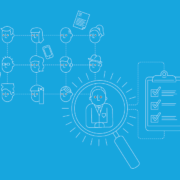
 During the first secondment, Soumia had the chance to exchange and collaborate with the CNR teams and ESRs that work on adjacent topics to hers. As Soumia’s research focus is around privacy issues in machine learning pipelines, her time in CNR was valuable since it allowed her to explore other horizons in the same topic as well as learn different approaches of privacy especially those related to federated learning and K-anonymity techniques. During that period, Soumia worked on different projects including the WOPA paper on fairness in machine learning systems and another collaboration project to study privacy attacks in federated learning settings.
During the first secondment, Soumia had the chance to exchange and collaborate with the CNR teams and ESRs that work on adjacent topics to hers. As Soumia’s research focus is around privacy issues in machine learning pipelines, her time in CNR was valuable since it allowed her to explore other horizons in the same topic as well as learn different approaches of privacy especially those related to federated learning and K-anonymity techniques. During that period, Soumia worked on different projects including the WOPA paper on fairness in machine learning systems and another collaboration project to study privacy attacks in federated learning settings. protection for machine learning systems. The exchange she had shaped the legal side of her thesis and equipped her with the necessary background to be as flexible in the legal discussion of privacy-preserving machine learning tools as she is on the technical side of the topic.
protection for machine learning systems. The exchange she had shaped the legal side of her thesis and equipped her with the necessary background to be as flexible in the legal discussion of privacy-preserving machine learning tools as she is on the technical side of the topic. The main challenge of my research is evaluating trust and reliability in data processing using data quality criteria. This period at University of Luxembourg (UL) was an opportunity to discuss with several data management, cybersecurity, finance, entrepreneurship and innovation, and law teachers concerning a survey on data quality criteria. These exchanges allowed me to perform the methodology and results of my survey. Finally, they suggested that I interview data professionals from different domains to consolidate my academic findings. Then, we proposed a draft to conduct these interviews to get the best feedback from the data professionals.
The main challenge of my research is evaluating trust and reliability in data processing using data quality criteria. This period at University of Luxembourg (UL) was an opportunity to discuss with several data management, cybersecurity, finance, entrepreneurship and innovation, and law teachers concerning a survey on data quality criteria. These exchanges allowed me to perform the methodology and results of my survey. Finally, they suggested that I interview data professionals from different domains to consolidate my academic findings. Then, we proposed a draft to conduct these interviews to get the best feedback from the data professionals. results. As data quality is a current concern in the data processing ecosystem, I have provided a framework that lists 30 relevant data quality criteria in the literature review. From the definitions of the literature review, I proposed a unified and standardized definition for each criterion. At Intel Corporation, I had the opportunity to interview several data actors in the European area about data quality challenges. Then, I collected the opinions on the relevant criteria for each professional (their criteria, definitions and evaluation levels). Finally, I analyzed the feedback and compared it with my previous findings.
results. As data quality is a current concern in the data processing ecosystem, I have provided a framework that lists 30 relevant data quality criteria in the literature review. From the definitions of the literature review, I proposed a unified and standardized definition for each criterion. At Intel Corporation, I had the opportunity to interview several data actors in the European area about data quality challenges. Then, I collected the opinions on the relevant criteria for each professional (their criteria, definitions and evaluation levels). Finally, I analyzed the feedback and compared it with my previous findings.